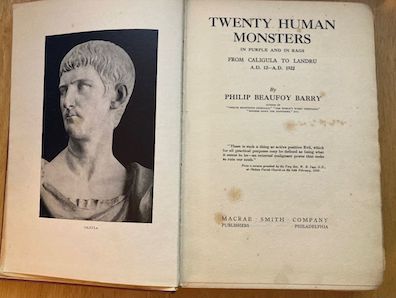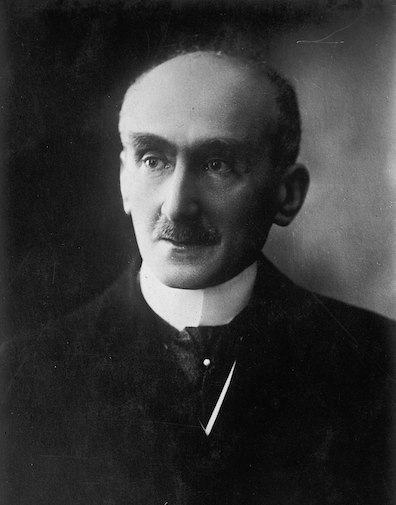In My Brother's Keeper Stanlislaus Joyce observed
that Philip Beaufoy "if I am not greatly mistaken was, and I
hope is still, a real person who had various short stories
accepted by Titbits in those years." Joyce scholar
David Pierce went looking for him in old issues of Tit-Bits.
In Reading Joyce (2008) he reported that he had found
multiple Beaufoy stories, including a "Prize Tit-Bit"
published in the 6 March 1897 issue that listed the author as
"Mr. Philip Beaufoy, Playgoers’ Club, Strand, W.C." (246).
In an earlier book, Joyce and Company (2006), Pierce
had identified three similarly named authors of children's
stories: Philip Beaufoy, Philip Beaufoy Barry, and P. Beaufoy
(42).
In an article on James Joyce Online Notes, John
Simpson shows that all three must have been the same man. From
1895 onward, P. Beaufoy and Philip Beaufoy were publishing
melodramatic fictions in Tit-Bits and other journals,
and in 1900, writing from the Playgoers' Club, P. Beaufoy
wrote a letter to an editor defending the paper's journalistic
practice. A new author, Philip Beaufoy Barry, appeared on the
literary scene in 1927 with the publication of no fewer than
five books: How to Succeed as a Writer: Twenty Methods of
Earning Money by the Pen, How to Succeed on the
Stage: a Practical Handbook to the Actor's Profession, The
Secret Power: A Handbook to the Art of Living, The
Mystery of the Blue Diamond, and Twelve Monstrous
Criminals from Nero to Rasputin, A.D. 37-A.D. 1916. Four
more books followed in the next two years: in 1928 How
to Succeed as a Playwright and Amateur Acting from a
New Angle, and in 1929 Sinners down the Centuries,
from Cleopatra to Cora Pearl & from Ovid to Edmund Kean:
69 B.C.–A.D. 1886 and Twenty Human Monsters in
Purple and in Rags from Caligula to Landru: A.D. 12–A.D.
1922. Still more books appeared in the 1930s.
Legal death notices from 1947, Simpson notes, confirm that
Beaufoy and Beaufoy Barry were the same man, and that both
were pseudonyms of one Philip Bergson. Born in 1871 (Vivien
Igoe says 1878, but this seems doubtful), Bergson was the son
of a Polish Jew named Michael Bergson or Michel Bereksohn, an
accomplished musician and composer who had migrated from
Warsaw to Geneva to Paris to London. The theatrical talents of
his son Philip were observed in two performances of
Shakespeare scenes for the City of London School's annual
Beaufoy Prize Day in 1886. The Beaufoy Prize, the Beaufoy
Shakespeare Medal, and Beaufoy Scholarships to Cambridge, all
funded by a wealthy distiller's endowment, apparently gave
Bergson his pseudonym.
According to Stanislaus his father got his literary culture
from Tit-Bits, but James cannot have esteemed this
mass-market publication or Beaufoy's light crowd-pleasing
prose, aimed at selling copy rather than telling truth.
Stanislaus noted that the imitative melodramatic story that
Joyce submitted to the journal, "as a joke" and under a false
name, was "suitably written down to the style" of its low-brow
model. But in 1904 Beaufoy had long been publishing fiction in
journalistic outlets, something that Joyce was trying to do at
that time, and when he wrote Ulysses he made Bloom
envy Beaufoy's remunerative literary success. Bloom is not
awed by the writing but he good-naturedly appreciates its
modest virtues before wiping himself with it: "Life might be
so. It did not move or touch him but it was something quick
and neat. Print anything now. Silly season."
In Circe his impulse to earn some money by imitating
this hack writer, combined with an assumption that anyone who
belongs to a private club in London must be his social
superior, make Beaufoy a prosecution witness at his trial.
Bloom grandly claims to "follow a literary occupation,
author-journalist." Beaufoy, "in accurate morning dress,
outbreast pocket with peak of handkerchief showing, creased
lavender trousers and patent boots," replies that Bloom,
"no born gentleman," is "A plagiarist. A soapy sneak
masquerading as a litterateur." Tit-Bits used this
high-toned word to address potential contributors ("TO
LITTERATEURS. The price we pay for original contributions
specially written for Tit-bits is ONE GUINEA PER
COLUMN"). The fictional Beaufoy adopts a correspondingly high
tone: "The Beaufoy books of love and great possessions, with
which your lordship is doubtless familiar, are a household
word throughout the kingdom.... My literary agent Mr J. B.
Pinker is in attendance. I presume, my lord, we shall receive
the usual witnesses' fees, shan't we? We are considerably out
of pocket over this bally pressman johnny, this jackdaw of
Rheims, who has not even been to a university."
Simpson reports one more discovery about Bergson, a
fascinating one: he had a much older brother, born in France,
named Henri. Joyce owned two of Henri Bergson's books, and
another book about him. Whether he knew that Bergson and
Beaufoy were brothers will probably never be known.


